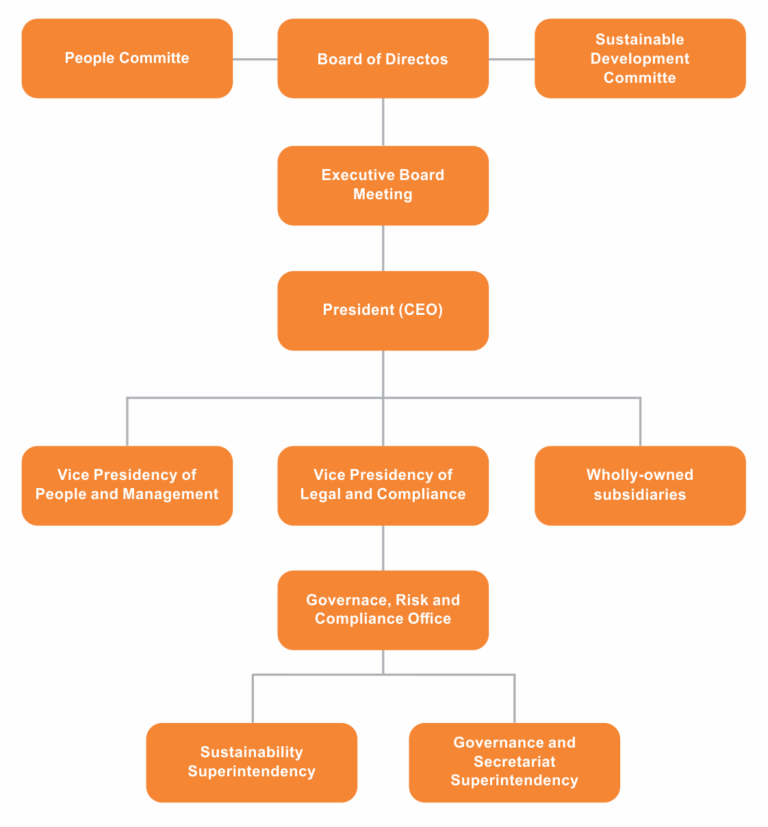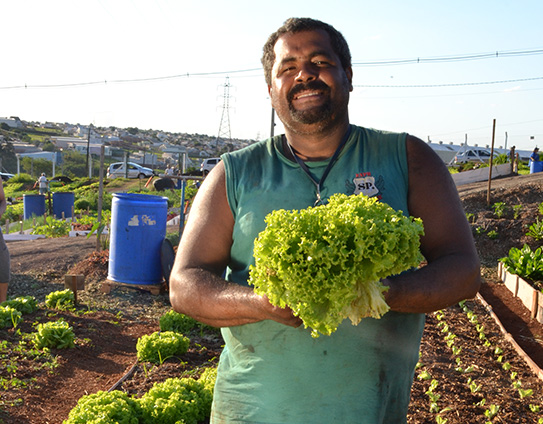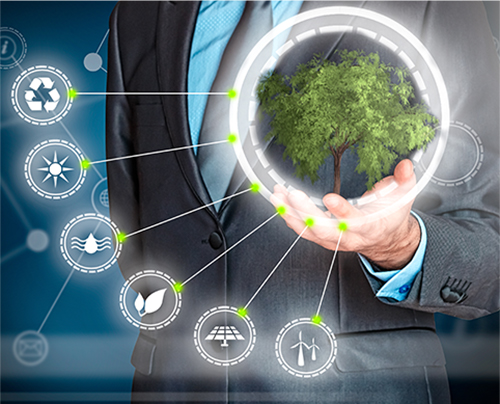Corporate Sustainability at Copel
Copel is a pioneer in the management of environmental, social and corporate governance issues. Throughout its history, it has consolidated its position as a company committed to providing energy and solutions for the sustainable development of society, being the first company in the electric sector to adhere to the Global Compact of the United Nations – UN, on July 12, 2000.
Economic growth, socio-environmental responsibility, innovation and excellence in governance are concepts intrinsic to the Company’s business strategy, and Copel is proud to be at the forefront of biodiversity preservation and socio-environmental programs, according to the guidelines of the Company’s Sustainability Policy.
Copel considers the expectations of stakeholders in its decisions and develops its business responsibly, always seeking alternatives that promote social welfare, aligned with legislation and international norms of behavior.
To disseminate and materialize this commitment, Copel develops actions and programs that benefit the community, the environment and the internal public.
As it believes that sustainable companies add value and strengthen its brand, gaining conditions to better face eventual economic, social and environmental risks.
Copel reaffirms that management for sustainability is the path capable of providing society, the environment and other stakeholders the opportunity to enjoy, as partners, the growth and development of the Company.
Copel, in its sustainability trajectory, prioritizes innovation in processes, the quality of services provided and transparency in management. For this reason, annually, it publishes the Sustainability Reports, according to the guidelines of the Global Reporting Initiative (GRI) and within the framework of the International Integrated Reporting Council (IIRC).
Sustainability
and You
Here in this space, it is possible to learn more about Copel’s trajectory along the path of sustainable development and the initiatives that the Company promotes in the dissemination of the culture of sustainability and in the engagement of internal and external audiences. It is also possible to access the portal map and find the contents of interest more quickly.

Sustainability Strategy
Copel bases its sustainability strategy on the principles and guidelines set forth in the Sustainability Policy, in the guiding values of the Company’s Code of Conduct, in the Strategic Reference, in the Strategic Planning, in the Materiality process and in the voluntary commitments undertaken, in particular: the Principles of the Global Compact and the Sustainable Development Goals – SDGs of the United Nations Agenda 2030.

Sustainability Organogram
Companhia Paranaense de Energia – Copel, as a holding company, has an executive board consisting of nine positions: Chief Executive Officer; Executive Director of People and Corporate Management; Executive Director of Finance and Investor Relations; Deputy Executive Director of Supply; Director of Legal and Compliance; Deputy Executive Director of Governance, Risk and Compliance; Director of New Business; Executive Director of Regulation and Market; Deputy Executive Director of Communication ─ as provided in its Bylaws.
The Company’s core activities are carried out by four wholly-owned subsidiaries. Copel Geração e Transmissão S.A., Copel Distribuição S.A., Copel Comercialização S.A. and Copel Serviços S.A. are focused on the process of production, transport, sale and delivery of electricity from hydroelectric generation, and the provision of related services.
Business in the renewable energy area led Copel to acquire 100% interest in specific purpose companies (SPEs), focused exclusively on the production of wind energy, which are managed by Copel Geração e Transmissão S.A., as described in the organizational chart.

Sustainable Development Committee
Copel’s Sustainable Development Committee (CDS) is provided for in Section IV of Chapter V of the Bylaws, being an independent, advisory and permanent body, advising the Board of Directors.
The attributions, operation, procedures and form of composition must comply with the current legislation and will be detailed by specific internal regulations, which will be approved by the Board of Directors.
The Sustainable Development Committee will consist of 03 (three) to 05 (five) members, elected and removed by the Board of Directors, all with a unified term of office of 02 (two) years, with a maximum of 03 (three) reappointments consecutive meetings and will meet periodically, deciding by majority of votes, with record in the minutes, including dissent and protests, as provided for in its Internal Regulations.

Voluntary Commitments
Copel is committed to its stakeholders with a commitment to environmental, social and governance responsibility through various voluntary commitments recognized locally and worldwide.
Sustainability Practices
Copel adopts as methodologies for sustainability management the methodologies, standards and certification platforms that are references in the preparation of reports, structuring of processes and classification of best practices for sustainable growth.




